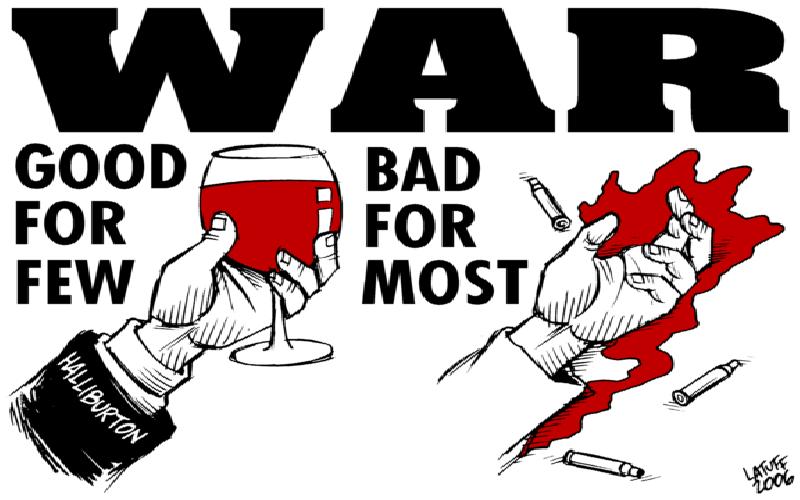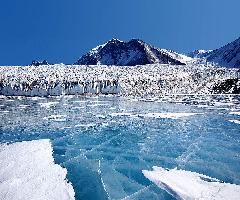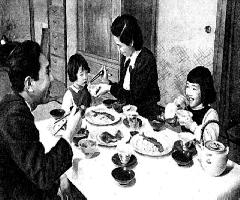Wars appear to be a glamorous action movie, till they arrive at our own doorstep, when they acquire the face of the most demonic part of human existence. Wars have preceded civilization, and evolution of civilization kept them at bay to some extent, until states and their quest of power rejuvenated them. The two World Wars of last century, the Cold War era and the War on Terrorism are all fresh in our memories.
You do not want war, neither does your friend… or your neighbor... or your brother. Then who wants it…
Do we really understand who wants these wars and why …!?
Wars are as old a part of human history as humanity itself. The interesting part is that wars precede civilization.
War in Pre-Civilized Times
Wars in the pre-civilized era were violent struggles between tribes and clans striving for dominance. This was a time when these clans and tribes often looked at each other as a competitor that posed danger to their own existence by competing for the scarce resources of nature that they needed for their existence and survival. With little capacity to produce anything, the human tribes were largely dependent upon the scarce natural resources, and needed to prevent others from consuming the same. Where they could dominate others, they could also “use” them for instance, as labor. This competition between ‘us’ and ‘them’ created a natural enmity and the basis of these initial human wars that preceded history.
Effect of Civilization
As humans settled into regular habitations, they gave up much of their animal fighting instincts too, in exchange for a set of norms and rules that brought harmony to the society. With family organizations, the young and the old were tendered and taken care of, while people lived in harmony in congested neighborhoods, harmoniously organizing their activities into effective forms of production, instead to indulging in fight and violence among themselves. The arrival of civilized society and the development of agricultural capacities made the human society relatively much more peaceful.
It is not that the wars stopped altogether. There were always centers of power, the chieftains and the leaders, who organized people loyal to them in form of forces and fought among themselves for dominance. Some of them became more powerful than others and proclaimed themselves to be the king. In some civilizations in Egypt, Europe and China, such kings also acquired the status of being representatives of god, or the chosen ones, in order to legitimize their rule. In other civilizations, notably, India, warrior class was subordinated to the intellectual class by social norms, thereby making it difficult for kings unable to exercise such influence. It did not mean that the King was prohibited from wars. It only meant the wars left ordinary people untouched. In China, it was the other way round, as Confucius, whose philosophy permanently influenced the local psyche, and still plays a role in the modern psyche of East and South East Asia, advocated obedience to the king as a human virtue. Such loyalty to the crown actually brought greater harmony and sustained continuance of the empire, contributing to peace.
Wars as Expected Part of King’s Behavior
Greatness gradually came to be associated with the ability of a King to expand his kingdom. Alexander the great almost conquered the world, setting the standards for kings all over the world. Recorded history tells us about large empires emerging in India and China too around that time. Throughout ancient and medieval history, there were wars between kings and emperors. Someone won and someone lost, and dynastic histories recorded them to create a list that would be just too long and boring if compiled together at one single place.
Civilizations Do Not Fight Wars
The most significant aspect of civilizations is that unlike their pre-civilized counterparts, civilized societies themselves never indulge in war with other civilizations. To some extent, it is because of the way civilized societies are spread and organized without any distinct borders. Any two great civilizations could be very different if we compare them as they were at their center, but move from one towards another, and we find that gradually the two civilizations merged somewhere in between, with people taking intermixing preferences related to culture and living and forming their own version of social norms and traditions that they followed. Civilizations actually have the ability to merge and fuse with each other, like a flowing stream of water that merges with another without any boundaries in between.
Wars within Civilizations
While civilizations did not fight with each other, kings and emperors often did, even when they were part of the same civilization. In fact, there were numerous wars between close relatives, son and father, brother, cousins and so on. These wars were not the wars of the people, even though people often got hurt by them sometimes. Most of these wars were either fought between the contenders for State authority, or for dominating neighborhood kingdoms to extract taxes or loyalty from them. However, with the exception of nomadic marauders from lesser civilized societies, like Central Asia, most of the wars within more civilized societies did not cause mass casualties for ordinary people, at least in the civilization cradles of Asia.
State and Revival of Wars
It was the strengthening of State that revived wars in recent centuries. Unlike the Kings of earlier times, modern States, which evolved first in Europe, were much better organized. These nation states actually claimed to represent people, and thereby merged people’s aspiration in their own to become an all aspiring, fully dominant, unitary force. The modern State, was a very highly integrated institution, and unlike the civilized society, ready to take on others
by violent means. The Nation States of Europe evolved with the increasingly loyalty of societies and people to the cause of the State, leading to the evolution of ‘nationalism’ as the most precious ideology. In a way, nationalism gave precedence to the State and its struggles for dominance over other States, almost in the same manner that pre-civilized tribes and clans used to do.The result was pursuance of national dominance. First it was war with other States. Soon it became a quest for dominance over other societies, which were not that well prepared for wars. Violence, of course was never the sole tool for furtherance of nationalism. Perhaps, far more effective, was politics, manipulation and strategies. Outcomes included imperialism. Colonization followed soon.
The Modern Empires
The modern empires of medieval era were spread across the world. The greatest of them was Ottoman Empire, till, of course, the rising nationalistic powers of Europe rose to conquer the world. France, Netherlands, Spain and finally Britain colonized practically the rest of the world. Austrio-Hungarian Empire, Germans, Russians and then, the United States and later even Japan joined the imperialistic competition that globalized the world, boosting a chain of scientific and economic developments on one hand, and a quest of power on the other that was just waiting to adopt violent means.
It was just a matter of time, before the relentless greed for power and dominance resulted in violent clashes between these powers, resulting in two great wars in the first part of twentieth century, and casualties and destruction on a scale that may have never been imagined earlier. The modern States and their aspirations for dominance had taken humanity back to the pre-civilized ages, when pre-civilized tribes fought with others without a remorse for destroying life. The results included genocide, cold blooded mass murders and gave rise to after effects that would take a good part of a century to resolve.
The After Effects of Great World Wars
There were two major after effects of the World Wars. First was to divide the world into two blocks competing for dominance and gave rise to the cold war era that subsided only with the collapse of the former Soviet Union. The second aftereffect was violent Pan-Islamism, fuelled by the void created from the destruction of Ottoman empire and the rise of Arabian dominance in Middle East for the first time in history, which backed by the power of Petro-wealth, resulted in a complex regional dynamics that is yet to settle down. The cold war was a war among the states, and hence subsided with the dilution of one of the two warring States.
The second after-effect, involving the Middle East, is still alive. It is sometimes termed as the clash of civilizations, but actually there is no involvement of any civilization. It is a proxy war of those with political aspirations for global dominance, who are using religion to achieve their goal. Actually, the tools of this ongoing war lie in destroying civilization and reverting people, in the name of religion, to pre-civilized tribal state and mentality.
The Wars Waged by Terrorists
The ideology of the terrorists is to create a division between ‘us’ and ‘them’ and make people believe, in the name of religion, that destroying ‘them’, killing ‘them’ and annihilating ‘them’ is fully justified. The thinking patterns are exactly the same as they were in the pre-civilized era. It is not a war between civilizations. It is a war launched by political spirants resorting to pre-civilized tribal mentality in the name of religion against the power of the states that they wish to dislodge, but more importantly, they intend to wage war against the civilization and its ideologies.
Epilogue
Civilizations do not fight war or indulge in violence. Civilization is what has got humanity to this stage of development and prosperity. Wars, communal violence, terrorism, genocide, and all similar forms of violence are actually a struggle between those who prefer a pre-civilized society where might is right and those who wish to reap the benefits of civilization. It is an eternal conflict, since civilizational non-violence often creates vulnerabilities of attack from violent pre-civilized elements. The real conflict is not the war or the violence, but the struggle to keep the forces that want it at bay!
The first step towards winning this conflict is to preserve the civilizational values of harmony and non-violence and discredit the warmongers. For this it is essential that we strengthen the human values of harmony, compassion, justice and peaceful living to prevent all wars and violence. Let us contribute to evolution of a modern global civilization that is strong enough to keep the tendencies of violence in the State at bay and prevent the pre-civilized communities from gaining further ground.
Let the ordinary human beings succeed in strengthening our civilizations and preventing all violent conflicts!










